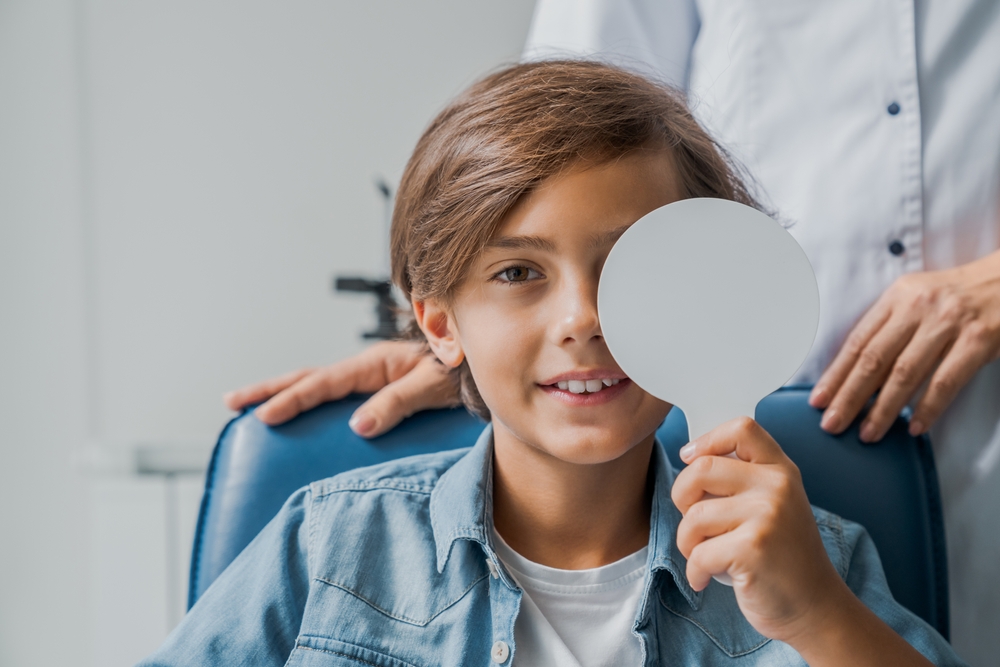Can Myopia Management Prevent My Child from Needing Glasses or Contact Lenses?

Myopia typically develops in childhood and can progress rapidly during the school-age years. If left unchecked, it can lead to an increased risk of vision-threatening conditions later in life, such as retinal detachment, glaucoma, and cataracts. Understanding the importance of myopia management is crucial for parents who want to help their children maintain good vision and prevent the potential long-term complications of this condition.
The Importance of Myopia Management
Myopia management is a proactive approach to slowing the progression of nearsightedness in children. By implementing effective myopia control strategies, you can help your child maintain better distance vision and reduce their dependence on glasses or contact lenses as they grow older.
Effective myopia management not only benefits your child's vision in the short term but also has long-term implications for their eye health. By slowing the progression of myopia, you can lower their risk of developing serious eye conditions later in life, such as retinal detachment, glaucoma, and myopic maculopathy. These conditions can lead to permanent vision loss if left untreated, making myopia management a critical aspect of your child's overall eye care.
Exploring Myopia Management Techniques
While traditional corrective lenses, such as glasses and daytime contact lenses, can help improve your child's vision, they do not actively address the underlying issue of myopia progression. Fortunately, there are alternative myopia management techniques that can be effective in slowing the worsening of nearsightedness without the need for daytime glasses or contact lenses.
Orthokeratology, or Ortho-K, is a non-surgical, reversible myopia management technique that involves the use of specialized rigid gas-permeable contact lenses worn overnight. These lenses gently reshape the cornea while your child sleeps, temporarily improving their distance vision during the day without the need for daytime corrective lenses. The benefits of Ortho-K include:
- Improved distance vision during the day without glasses or daytime contact lenses
- Potential slowing of myopia progression by up to 50% or more
- Reduced risk of developing vision-threatening conditions later in life
- Convenience and flexibility, as the lenses are worn only at night
Another myopia management technique that doesn't require daytime glasses or contact lenses is the use of low-dose atropine eye drops. Atropine is a medication that can slow the progression of myopia by reducing the eye's ability to focus, which in turn reduces the stimulus for the eye to elongate and become more nearsighted. The benefits of low-dose atropine eye drops include:
- Potential to slow myopia progression by up to 60%
- Minimal side effects, such as temporary light sensitivity or blurred near vision
- Ease of use, as the drops are applied once daily
While atropine eye drops do not directly improve distance vision like Ortho-K, they can be a highly effective tool in managing myopia progression and reducing your child's long-term dependence on corrective lenses.
Get Started with Justice Vision Clinic Today
As the prevalence of myopia continues to rise globally, the importance of effective myopia management has become increasingly recognized. Techniques like Ortho-K and low-dose atropine eye drops offer promising alternatives to traditional corrective lenses, providing parents with the opportunity to proactively address their child's myopia and potentially prevent the need for lifelong dependence on glasses or contact lenses. With the right approach, you can help your child maintain better distance vision, reduce their risk of vision-threatening conditions, and set them up for a future with greater visual freedom and independence.
To learn more about how myopia management can benefit your child, schedule a consultation with Justice Vision Clinic. We can assess your child's vision and recommend the most suitable myopia control options to help protect their long-term eye health. Visit our office in Duluth, Georgia, or call (770) 626-7883 to book an appointment today.







